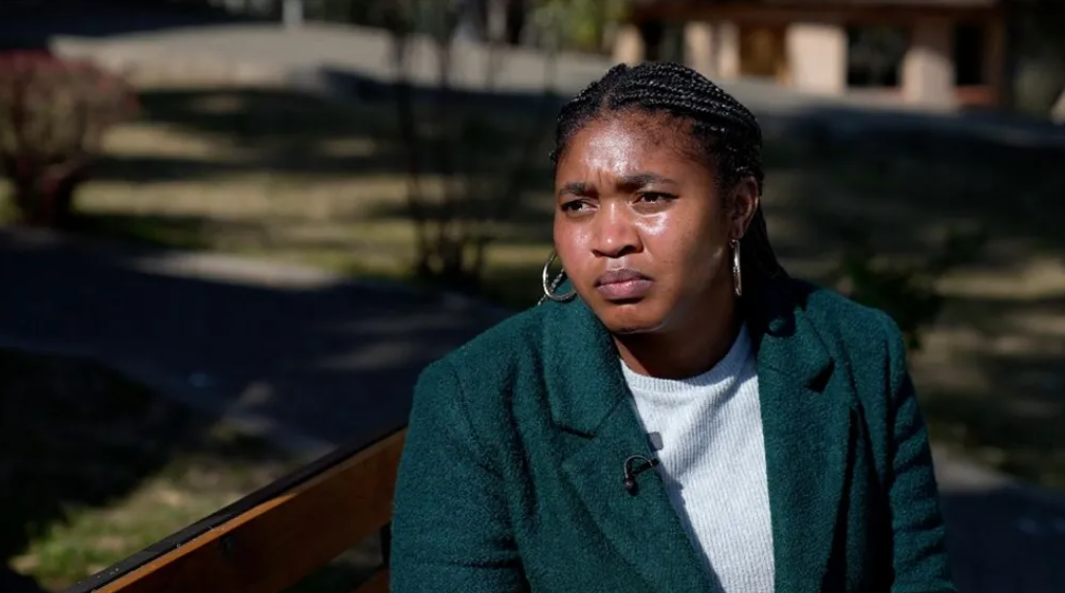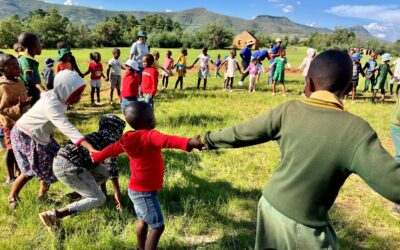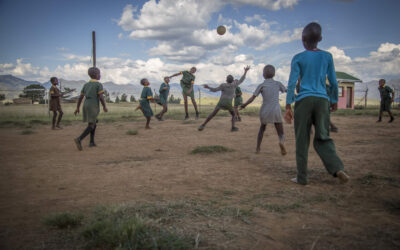Above – Lineo Raphoka, a Psychosocial Support Officer with Help Lesotho, leading a session at Help Lesotho’s Seotlong Centre in Hlotse; photo credit BBC.
Last month, BBC African division reporter Andre Lombard visited the Leribe District of Lesotho. During his stay, he spent time at Help Lesotho’s Seotlong Centre in Hlotse, engaging with our program staff and participants. His objective was to delve into the mental health crisis in Lesotho and explore why the country has been identified by the World Health Organization as having the highest suicide rate in the world.
Mr. Lombard chose to feature Help Lesotho in his coverage as an example of what NGOs are doing to help. He sat in on mental health group sessions, visited the homes of our program participants, and interviewed our staff in order to grasp the depth of the crisis and the urgent needs that Help Lesotho’s work responds to.
We appreciate the BBC bringing this issue to light on a global stage.
BBC Coverage:
Help Lesotho’s Mental Health Approach
Understanding the Mental Health Crisis: The mental health crisis in Lesotho is multifaceted. With the second highest prevalence of HIV/AIDS in the world (approximately 20%), mental health issues such as depression and anxiety are abundant. Additionally, many Basotho face the daily stresses of poverty, food insecurity and unemployment. The lack of mental health infrastructure means that many people suffer in silence, unable to access the care they need. Mental health services, particularly in remote regions of the country, are scarce or non-existent, and the stigma surrounding mental illness often prevents individuals from seeking the help they need.
Our Approach: Help Lesotho’s programming is focused on education, leadership development and psychosocial support. Our programs are designed to address the root causes of mental health issues and to provide sustainable solutions. Here’s how we are making a positive impact:
- Building Resilience: A key component of Help Lesotho’s programming is to help individuals build their resilience. By teaching effective coping strategies for dealing with stress and adversity, individuals can feel empowered to manage their mental health proactively and overcome their obstacles.
- Open Communication: Creating safe spaces for individuals to talk about their feelings and experiences is crucial. Support groups and counseling sessions provide these opportunities.
- Positive Relationships: Building strong, supportive relationships within communities helps to reduce isolation and provides a network of care.
Our Impact: Help Lesotho has been supporting people to understand their mental health and improve their well-being for twenty years. Our program participants learn that they are not alone with their challenges, and that there is hope for a brighter future. We are witnessing the stigma related to mental health diminish every day. Our participants want others to know that they have been to the lowest point of their lives, and that they are relieved that they are still alive today. Their openness to share the pain that we have always known was consuming people is a monumental shift towards resilience for the Basotho nation. This is the critical mass we have been pouring our efforts into.
Photos from the BBC’s visit to the Hlotse Centre










